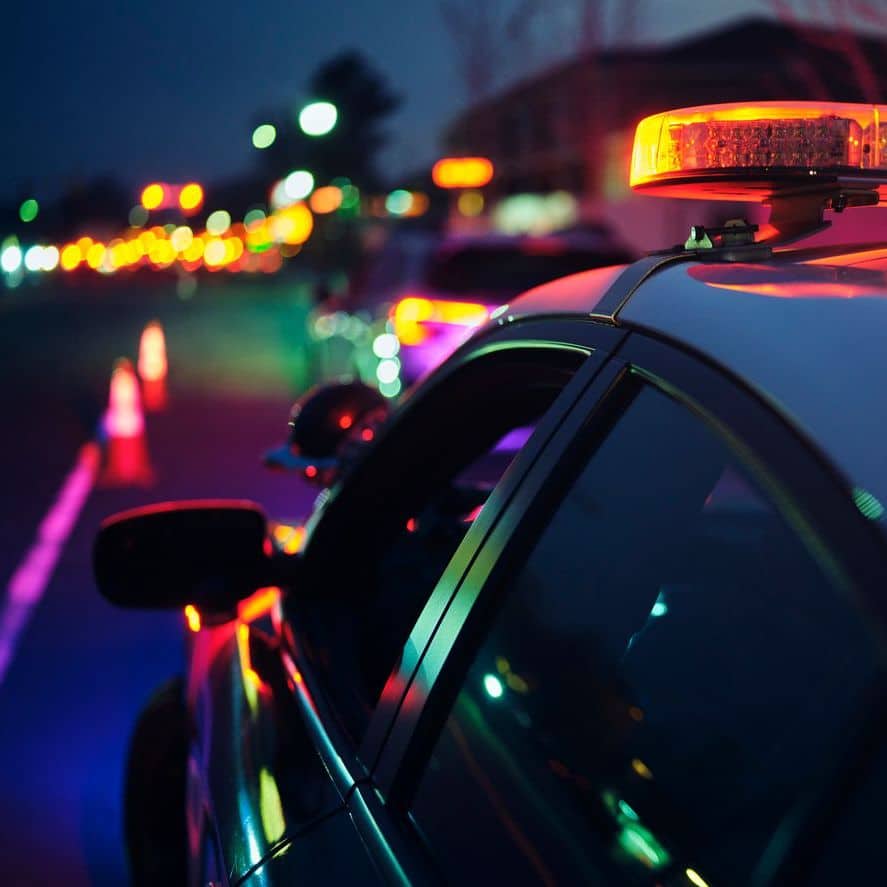Causing an accident that causes injury or death to another person is a severe offense under Indiana law. If convicted, you can receive up to 12 years in prison in many instances, and up to 16 years is possible with aggravating circumstances. Plus, you will have a permanent criminal record demonstrating irresponsibility and recklessness, which can significantly complicate your employment prospects. This charge is commonly filed against someone for being intoxicated, causing death.
If you were charged with causing catastrophic injuries while operating a motor vehicle, your freedom and future are at stake. Conviction consequences are disastrous and may derail your life. Retain a proven criminal defense attorney at Gemma & Karimi now.
Our criminal defense and catastrophic injury lawyer is an accomplished litigator and ex-prosecutor with outstanding case results over the decades. Contact our Indiana law office for an immediate, free consultation at (317) 602-5970.
Understanding Catastrophic Injury Charges
Being intoxicated and causing catastrophic injury while driving a motor vehicle means you allegedly caused an injury that may result in permanent disability, disfigurement, or death. Depending on the case, a person could be charged and possibly convicted for these offenses:
OWI Causing Death
Operating a vehicle while intoxicated and causing the death of another person. This is a Level 4 felony; you may receive two to 12 years in prison and up to a $10,000 fine. It’s an enhanced charge if you have a previous drunk driving conviction in the past seven years.
OWI Causing Catastrophic Injury
Operating a vehicle while intoxicated and causing “catastrophic injury” to another person. It is a Level 4 felony with two to 12 years in prison and up to a $10,000 fine. Can be an enhanced charge for a previous OWI incident.
OWI Causing Serious Bodily Injury
Operating while intoxicated and causing “serious bodily injury” if you had an alcohol concentration equivalent to .08%. It is a Level 5 felony with one to six years and up to a $10,000 fine.

Facing criminal charges in Indianapolis?
Call our Indiana Criminal Defense attorney at (317) 676-4747 or fill out our online contact form today to schedule a free consultation!
Types of Catastrophic Injuries
Catastrophic injuries under Indiana law may include the following:
Traumatic Brain Injuries (TBI)
Damage to the brain from external force in the incident, ranging from concussions to severe skull fractures or brain bleeds. Examples are coma, permanent cognitive impairment, loss of motor skills, and personality changes.
Spinal Cord Injuries (SCI)
Damage to the spinal cord, often affecting mobility and sensation below the injury site. Examples include paraplegia (lower body paralysis), quadriplegia (all limbs and torso paralyzed).
Severe Burns
Third- or fourth-degree burns that destroy skin layers, nerves, and sometimes underlying tissue or bone. Severe burns may cause disfigurement, loss of limbs, and systemic infections that are difficult to eliminate.
Amputations
Loss of a limb or extremity, either from trauma or surgical necessity, post-injury. The accident victim could suffer the loss of an arm, leg, fingers, or toes in the auto accident.
Multiple Fractures or Complex Bone Injuries
Widespread or compound fractures that impair function or require major reconstruction. Examples include a shattered pelvis, multiple broken ribs, and crushed limbs. These injuries are common in high-speed auto accidents.
Organ Damage or Loss
The accident may cause severe injury to internal organs, often requiring surgery or leading to permanent dysfunction. Examples include a ruptured spleen, punctured lungs, kidney failure, or loss of eyesight/hearing.
Crush Injuries
Compression of body parts leading to extensive tissue, muscle, or nerve damage. Auto accident victims could suffer mangled limbs, internal bleeding, and compartment syndrome.
You could face a personal injury lawsuit after allegedly causing a catastrophic injury with a motor vehicle in the accident. Your criminal defense attorney can provide legal advice about possible civil litigation, if needed.
Defenses and Mitigating Factors
A vigorous defense against catastrophic injury charges is essential to protect your rights after a catastrophic accident. Some of the defenses that may be effective are:
Lack of Intoxication
The prosecution must prove beyond a reasonable doubt that you were intoxicated at the time of the accident, typically with a blood alcohol concentration (BAC) of 0.08% or higher, or with a controlled substance. Your attorney may challenge the accuracy of the breath or blood test.
Causation Dispute
Even if intoxicated, you didn’t cause the death or catastrophic injury. Another factor may have been the primary cause, such as another driver’s negligence. Your lawyer may reconstruct the accident using forensic experts, eyewitnesses, or traffic camera footage to show the victim darted into traffic, another driver ran a red light, or a pothole triggered the accident.
Valid Prescription Defense
You may have a defense if a controlled substance in your system was consumed per a valid prescription or a practitioner’s order. Your criminal defense lawyer will prove that the drug was legally prescribed, taken as directed, and didn’t impair your driving ability beyond expected side effects.
Illegal Search or Seizure After Accident
Evidence of intoxication was obtained in violation of your rights under the Fourth Amendment after the accident. The attorney may argue that Indiana police didn’t have probable cause to stop you.
Challenging The “Catastrophic Injury” Definition
The injury doesn’t meet Indiana’s legal threshold for “catastrophic injury.” If it’s less severe, the charge could drop to a Level 5 or 6 felony. Your attorney may call medical experts to dispute the nature or severity of the injury, and it could be reduced to serious bodily injury in some cases.
Mitigating factors exist for this charge. You could receive a lower sentence if you are a first-time offender or if you cooperated fully with the police. Good character and community ties could also reduce your sentence for a serious bodily injury or a catastrophic injury conviction.
Consequences Of A Conviction In Indiana
You face at least two years in prison if convicted of this charge and a $10,000 fine. Additionally, there could be these consequences of a conviction for being intoxicated causing catastrophic injury or death:
- Automatic suspension of your driver’s license for at least one year.
- Permanent felony record stays on your record for at least eight years, and often more. You must apply for expungement if you were convicted for the accident.
- There are financial consequences, such as lost income from the felony conviction and job loss, much higher auto insurance rates, and being forced to pay restitution to the victim.
- You may be sentenced to probation and community service, as well.
- An OWI conviction for causing serious bodily injury or catastrophic injury in an accident may cause you to lose your job, have difficulty finding a new one, or be ineligible for student financial aid.
Your criminal defense attorney can help you understand the possible consequences of a conviction for causing serious injuries, and build a strong defense to minimize a negative outcome.

Indiana Statute of Limitations For Causing A Catastrophic Or Fatal Accident
The statute of limitations for criminal prosecution for an OWI felony charge in Indiana is five years from the date of the offense. This timeline applies to most Indiana felony prosecutions.
The state also has a statute of limitations for personal injury cases involving catastrophic or serious injuries. The deadline for someone filing a catastrophic injury case against you for negligence is two years from the accident date. Your criminal defense attorney can advise you about potential charges and lawsuits the incident may cause.
Damages and Compensation
You may face a personal injury lawsuit for causing someone a catastrophic injury or death in a motor vehicle accident. If the claim is successful, you could be ordered to pay compensation for the injured person’s medical bills, lost wages, and pain and suffering. If you were convicted of drunk driving, your auto insurance may not pay, so you could be personally liable. Paying tens or hundreds of thousands in compensation to the accident victim is difficult for most people.
Any civil case you face is separate from the criminal one, so speak to your catastrophic injury lawyer for more information about potential civil liability and paying compensation after a serious accident.
Contact An Indiana Criminal Defense Lawyer Now
Were you accused of causing a catastrophic injury while driving a motor vehicle? Gemma & Karimi, criminal defense lawyers, are ex-prosecutors with decades of experience successfully defending people charged with serious motor vehicle crimes. Our stellar case record has led to hundreds of dismissals and not-guilty verdicts after serious traffic accidents.
Our criminal defense and catastrophic injury lawyer can review your case during a free consultation and determine the best legal action. In some cases, we may be able to negotiate a plea agreement that includes a reduced sentence or alternative sentencing options. Our attorneys can also help you understand the potential consequences of a conviction on your driver’s license. In some cases, we may be able to argue that the suspension or revocation of a driver’s license is excessive or unwarranted.
Your future is at stake, and our criminal defense attorneys want to help. Contact (317) 602-5970 for a free case evaluation about your catastrophic or serious bodily injury case.
Frequently Asked Questions
Serious bodily injury is legally defined as harm creating a substantial risk of death, causing serious permanent disfigurement, unconsciousness, extreme pain, permanent impairment of a bodily function, or loss of a fetus.
It is a felony. Unlike standard misdemeanors, causing serious bodily injury is a Level 6 Felony punishable by up to 2.5 years in prison, or a Level 5 Felony if you have a prior OWI conviction within five years.
This is typically a Level 4 Felony carrying 2 to 12 years in prison, fines up to $10,000, and a license suspension ranging from 2 to 5 years.
The key difference is the requirement to prove causation. The state must prove your intoxicated driving was the direct proximate cause of the injury, not just that you were driving while impaired.
Stop immediately, call 911, remain silent regarding fault or drinking, refuse all field sobriety tests, and demand an attorney before answering any police questions.
Yes, we frequently challenge the calibration of the Intoximeter EC/IR II machine and the chain of custody for blood draws to have the results declared inadmissible.
We aggressively attack the causation element by arguing that an independent factor caused the accident, while simultaneously challenging the legality of the traffic stop and chemical tests.
This defense argues that an unforeseeable event, such as the victim’s own reckless driving or a mechanical failure, was the actual cause of the accident rather than your intoxication.
You are likely eligible for Specialized Driving Privileges to drive to work and court unless you refused the chemical test at the time of your arrest.
Jail is a significant risk for felony charges, but we fight for alternatives like home detention, work release, or probation based on the specific facts of your case.
The case progresses through an initial hearing for bail, discovery of evidence, pre-trial motions to suppress evidence, depositions of witnesses, and finally plea negotiations or a jury trial.
Yes, you can face a civil personal injury lawsuit simultaneously, and we must coordinate your defense to ensure civil admissions do not harm your criminal case.
Evidence of the other driver’s fault is critical to our defense strategy because it supports the argument that your actions were not the proximate cause of the injury.
You need an attorney with specific technical experience in crash reconstruction, medical pathology, and toxicology to effectively challenge the state’s expert witnesses.
The court is legally required to immediately suspend your license if there is probable cause of OWI causing death, with potential suspensions lasting 2 to 5 years upon conviction.

Contact Our Firm
Interested in our services? Fill out some info and we will be in touch shortly. We can’t wait to hear from you!

